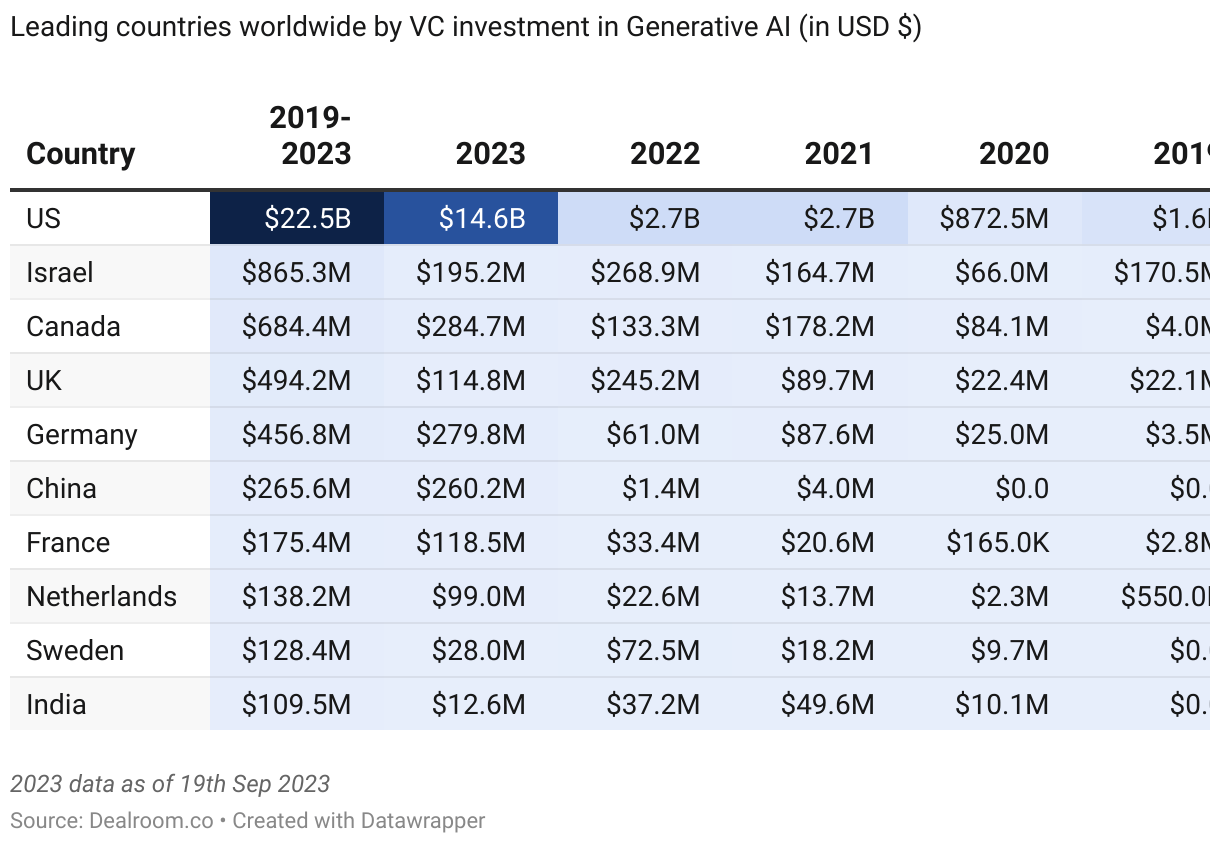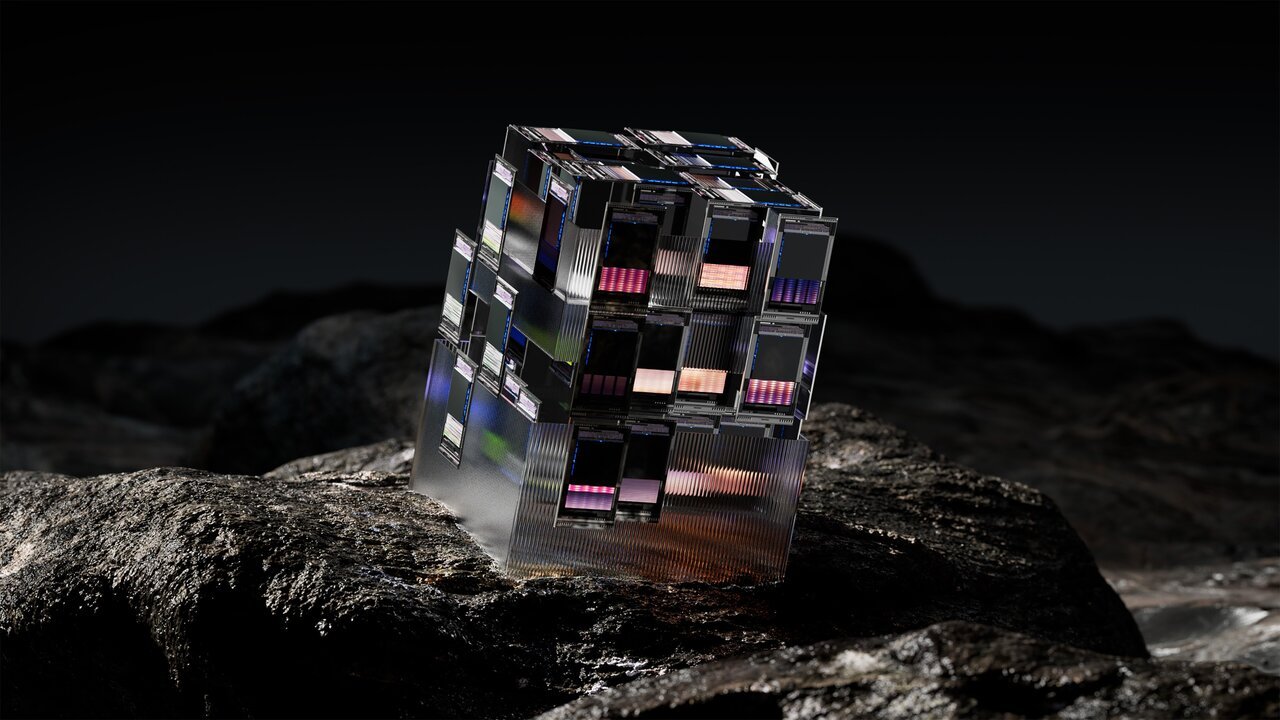This week, billionaire Xavier Niel announced a €200 million investment in artificial intelligence in an effort to attract, retain, and return talent in France and bring AI sovereignty to France. But is it too late?
Xavier Niel is the founder and CEO of telecom company Iliad and owns the world's largest startup campus, Station F, in Paris.
The money will be distributed between a yet-to-be-built research lab in Paris, run by a nonprofit foundation, cloud supercomputing powered by NVIDIA, and startup funding.
"For artificial intelligence to work, you need three things: researchers, computing power and companies that exploit all of that.
"We really need…. to not have all of our data going elsewhere, so that AI does not depend on algorithms not created here and which are not European.
We don't want to have algorithms for our children that rely on our American or Chinese friends. They are fantastic, but we perhaps do not have the same rules or the same practices . We want our algorithms to follow our rules, with our operating methods."
The push for French AI sovereignty
Niel is one of the investors in Mistral AI who raised €105 million in June after a month operating as a company. This week it released its first large language AI model, Mistral 7B.
The 7.3 billion parameter model outperforms bigger offerings, including Meta's Llama 2 13B. The company is open-sourcing the most under the Apache 2.0 licence.
However, Niel is not the only person in France pushing for the country to become a powerhouse of AI innovation.
In June French President Emmanuel Macron announced a €500 million package "to help create five to 10 clusters in France and to have two or three world-class centres of excellence."
Europe has already been left behind
Unless there's suddenly a monumental cash or infrastructural injection from governments and the EU, Europe will struggle to maintain AI sovereignty.
But to date, there's no evidence that Europe can keep up with the powers of AI such as Google, Microsoft, IBM and Meta. These companies are not only leading the way with AI and supercomputing but funding the work of others — in January, Microsoft invested €10 billion in OpenAI, the makers of ChatGPT, as part of a "multiyear, multibillion-dollar" investment.
And besides many companies creating new homes in the US for that all too important funding, it doesn't help that there are plenty of examples of French talent that has made its home in the US. For example, Yann Le Cun is now the head of Meta's AI laboratory following a successful US career.
Further, most of the money in AI is going to US companies.
For example, Generative AI startups have attracted huge funding from investors, with over $26 billion raised in the last five years.
However, according to Dealroom, $20 billion — 89 percent of the global total that VCs have invested in generative AI since 2019, — went to US startups. Just 5 percent —- $1 billion — went to European startups. Unsurprisingly, American companies attracted the bulk of the money.

While France may have open-source AI platform Hugging Face, which bagged €217 million from Salesforce Ventures, Google, Amazon, NVIDIA, IBM, and others last month, bringing its value to $395.2 million in funding, it's a far cry from OpenAI's $11.3 billion fundraising to date.
Even Silo AI which builds the world's largest open-source LLM has only publicly disclosed raising €10 million in funding to date, in addition to raising a round of an undisclosed amount.
Simply put, a high level of funding is vital to generate the salaries that attract high-level talent, and establish the coexisting public-private research institutions where the convergence of talent meets to create high-value theoretical and commercial products. While European companies may have more experience doing more with less, this scrappy startup mentality fails when you need to compete on a high level commercial scale.
While I applaud Niel's efforts, €200 million is just a drop in the ocean. And given the relationship between the enterprise and NVIDIA, the announcement timing is curious, given Nvidia's France offices were raided by the country's competition authority this week over concerns about anti-competitive practices in the graphics cards industry.
Companies like Microsoft and OpenAI use thousands of NVIDIA's high-end AI chips to power large language models. This raises questions about the potential impact on partnerships crucial for AI advancements.
Xavier Niel's €200 million investment in AI, while commendable for its aim to bolster French talent and AI sovereignty, needs a similar commitment from private and public investment throughout Europe if the region is to keep pace with major AI players.
Lead image: Nicholas Arnold.



Would you like to write the first comment?
Login to post comments